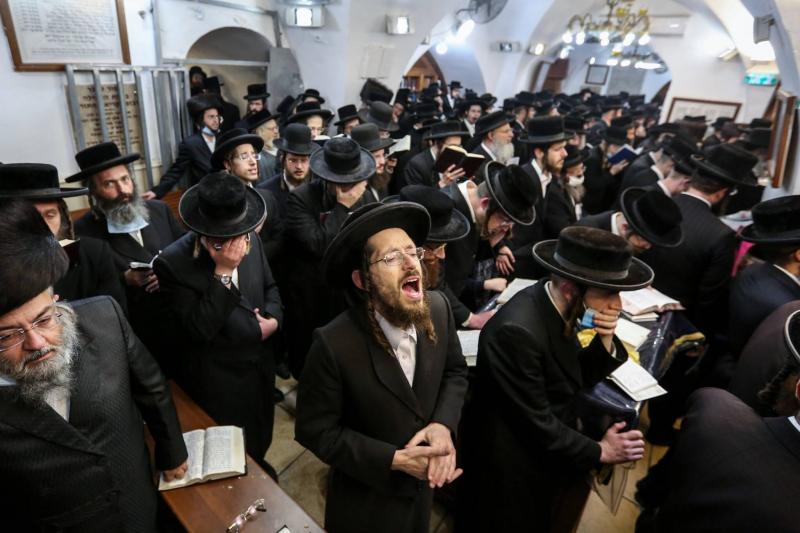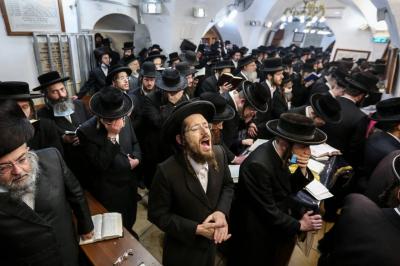The Israeli Supreme Court has ruled that the government must begin recruiting Haredi Yeshiva students into the army, a decision that ends the long-standing exemption for this group and is likely to undermine Prime Minister Benjamin Netanyahu's coalition. With Netanyahu having a chance to seek a compromise that maintains the cohesion of his ruling coalition, the Attorney General stated that recruitment should immediately begin for around 3,000 Haredi religious students. The exemption, in place for decades and which has allowed an increasing number of individuals to avoid service, has become a contentious issue in Israel as the army engages in a war in the Gaza Strip amid rising tensions at the Lebanese border.
What happens now?
Haredi Jews are preparing to protest in Jerusalem at 16:00 GMT today, expressing their anger over the ruling, which also includes cutting government funding to institutions whose students do not comply with recruitment. Netanyahu is relying on the support of two religious parties to maintain his government’s stability. The government is already attempting to draft a law that aligns with the Supreme Court’s decision without upsetting its coalition partners. The bill is still under discussion in the Knesset and might provide for a gradual recruitment of an increasing number of Haredim into the army. The government could promote this law as evidence of its compliance with the court ruling while providing legal modifications that would ease the impact on Haredi Yeshiva students. However, if the bill stalls and only the court ruling remains, it could place additional pressure on Netanyahu's coalition, potentially pushing Israel towards new elections.
What is behind the dispute?
The exemption for Haredim dates back to the early days following the declaration of the State of Israel in 1948 when the socialist David Ben-Gurion, the first Prime Minister, exempted around 400 students from military service so they could dedicate themselves to religious study. Ben-Gurion hoped to protect Jewish knowledge and traditions after they were nearly obliterated during the Nazi Holocaust. Since then, exemptions have become an increasingly troubling issue as the rapidly growing community now constitutes over 13 percent of Israel's population, a number expected to rise to about a third of the population within 40 years due to their high birth rates.
Haredim's opposition to joining the army is grounded in their strong sense of religious identity, which many families fear may weaken through military service. Some Haredi men do serve in the military, but most do not, a situation that many secular Israelis feel exacerbates social divisions. Most Haredi men do not work to earn money and instead live on donations and government aid, along with the low wages earned by their wives, many of whom work for little pay. Haredi Jews predominantly live in neighborhoods primarily populated by the religious and dedicate their lives to studying religion. For secular Israelis, obligated to serve in the army and whose taxes help support the Haredim, these exemptions have long sparked resentment, which has intensified since the outbreak of the war in Gaza. Many Israelis view the war against Hamas as an existential battle for the state’s future. Approximately 300,000 reservists have joined the fight. Polls indicate widespread public support for ending the Haredi exemption from drafting.
What are the risks for Netanyahu?
For Netanyahu, the stakes are high. While public opinion seems in favor of abolishing the exemption, his government includes two religious parties whose departure from the coalition could lead to new elections that polls suggest Netanyahu would lose. Previously, the two Haredi parties, United Torah Judaism and Shas, pledged to oppose any attempts to abolish the exemption. Some members of Netanyahu’s Likud party have displayed discomfort or opposition to the exemption, including Defense Minister Yoav Gallant, a former general and prominent Likud member.




